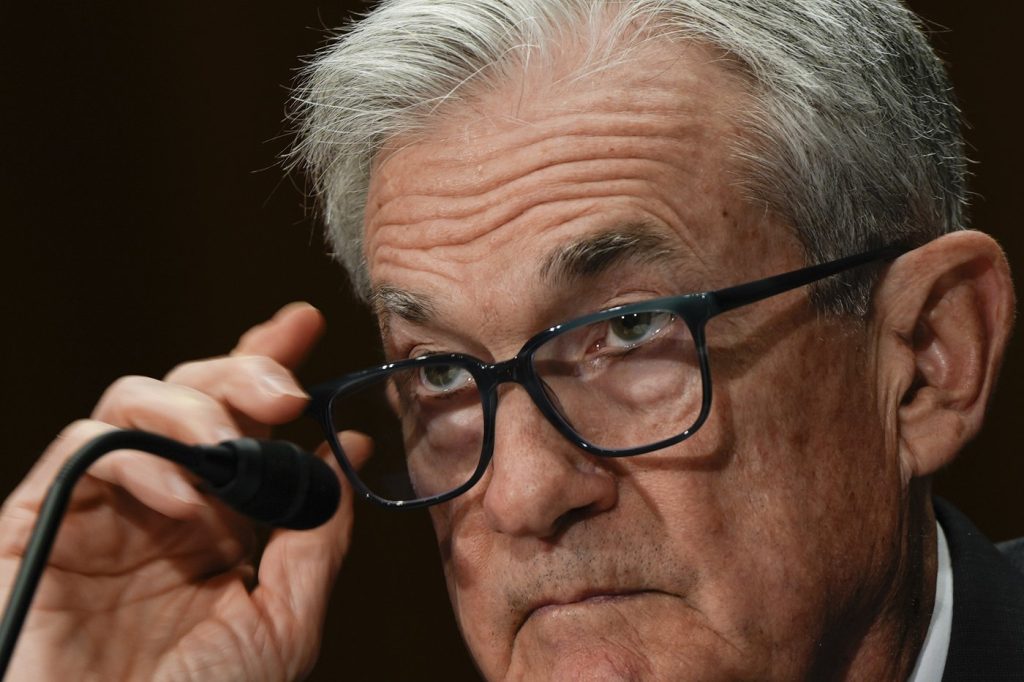Federal Reserve Chair Jerome Powell is receiving significant support from Republican senators on Capitol Hill, even as President Donald Trump continues to threaten his dismissal. This week, Trump’s wavering stance on potentially removing Powell has prompted Republicans to caution against such a move, arguing that it could jeopardize the Fed’s political independence and create uncertainty within the U.S. economy.
Senator Thom Tillis from North Carolina expressed concerns during a floor speech, stating, “If anybody thinks it would be a good idea for the Fed to become another agency in the government subject to the president, they’re making a huge mistake.” His remarks reflect a growing anxiety among traditional Republicans who fear the potential repercussions on economic stability if Trump were to follow through with his threats against Powell. The economic fallout, Tillis noted, could adversely impact average Americans, particularly those with modest savings, like “little guys like me that grew up in trailer parks.”
Moreover, Tillis emphasized that many of the decisions regarding interest rates are not made solely by Powell but are the result of a collective process involving a 12-member committee. South Dakota Senator Mike Rounds also weighed in, suggesting that market expectations hinge on the Fed’s independence, asserting that any indication of political control could undermine confidence in the institution’s decision-making.
Conversely, other Republican voices, such as Ohio Senator Bernie Moreno, have echoed Trump’s criticisms, calling Powell “the most incompetent, worst Federal Reserve chairman in American history” and suggesting that he should resign. Trump was reportedly encouraged to fire Powell during a recent meeting with far-right House members, further fueling the debate within party ranks.
House Speaker Mike Johnson expressed his dissatisfaction with the Fed's leadership but questioned whether Trump actually possesses the legal authority to dismiss Powell. French Hill, chair of the House Financial Services Committee, reinforced the notion that presidents cannot fire the Fed chair without cause, while also acknowledging Trump’s grievances regarding Powell’s leadership. Hill pointed out that Powell's term is set to conclude next year, allowing Trump an opportunity to appoint a new chair if he chooses.
The creation of the Federal Reserve over a century ago included provisions to protect it from political pressures, allowing governors and the chair to be removed only “for cause,” a standard that is notably higher than for most political appointees. Recently, the Trump administration has attempted to classify Powell’s management of a $2.5 billion renovation project at the Fed's headquarters as sufficient grounds for dismissal.
Democratic Senator Elizabeth Warren criticized this line of reasoning, arguing that the increased scrutiny on the Fed's spending, particularly concerning the renovation, is an inadequate justification for challenging its independence. Senator Tim Scott, chair of the Senate Banking Committee, indicated that he supports increasing transparency and accountability at the Fed, aligning with the ongoing discussion around Powell's leadership.
Many Republicans are wary of the implications of attempting to remove Powell, with Senator John Kennedy suggesting that such a move would likely result in a drawn-out legal battle. He expressed empathy for Trump’s frustration regarding the Fed's reluctance to lower interest rates amid inflation concerns but reaffirmed the importance of maintaining the Fed’s independence throughout the process.
Even among Republicans advocating for Powell’s firing, there is recognition of the potential turmoil it could instigate. Senator Moreno acknowledged that it is ultimately the president's decision but cautioned against dragging the nation through the repercussions of a controversial dismissal.










